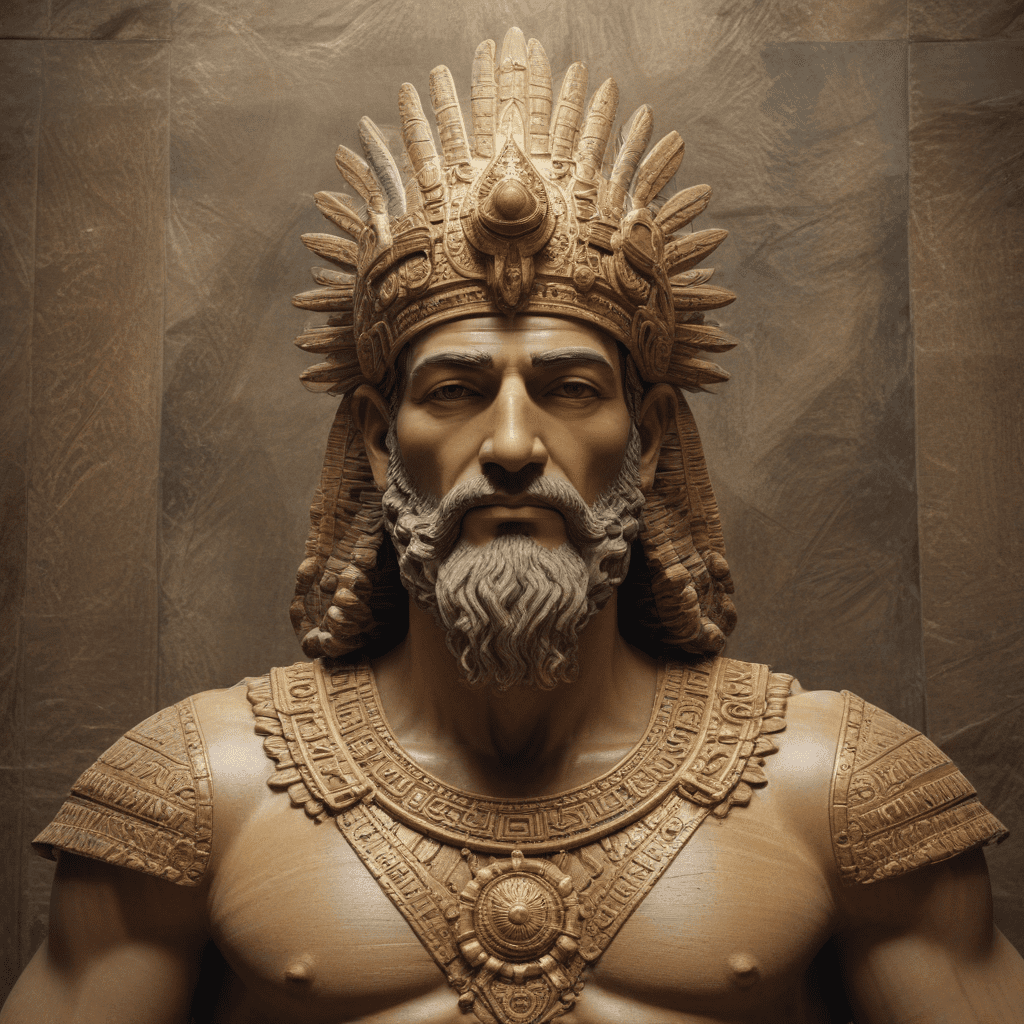1. Introduction
African mythology holds an extensive and profound legacy that continues to resonate within modern culture, captivating imaginations and serving as a rich source of inspiration for creative expression. Throughout history, its intricate tapestry of myths, legends, and beliefs has profoundly influenced various aspects of our contemporary world, leaving an indelible mark on literature, arts, music, storytelling, and even contemporary popular culture. This article will explore the multifaceted influence of African mythology on modern society, examining its historical roots, exploring its central themes, and tracing its profound impact across diverse creative domains.
2. Historical Roots of African Mythology
Tracing its origins to the ancient civilizations of Africa, African mythology boasts a diverse repository of narratives, beliefs, and traditions that have evolved over centuries of oral storytelling and cultural exchange. Embedded within its rich tapestry are the origins of human creation, explanations for natural phenomena, and tales of gods, goddesses, heroes, and spirits. Storytelling has played a central role in preserving and transmitting these myths, serving as a vehicle for cultural identity and continuity within communities. The mythology of Africa reflects the unique experiences, histories, and worldviews of its diverse peoples, showcasing a vibrant and ever-evolving cultural landscape.
3. The Role of Ancestral Spirits and Deities
Ancestral spirits hold a revered position within African mythology. They are believed to possess immense power and are often invoked for guidance, protection, and wisdom. Myths surrounding ancestral spirits delve into the delicate balance between the living and the dead, emphasizing the importance of lineage, kinship, and honoring one’s heritage. Furthermore, numerous mythologies in Africa feature a pantheon of gods and goddesses who embody natural forces, moral values, and cosmic principles. These deities play pivotal roles in the creation and governance of the world, often serving as protectors of their people and arbiters of justice.
4. Symbolism and Rituals in African Mythology
African mythology abounds with profound symbolism that serves to convey complex ideas. Animals, objects, and natural phenomena assume allegorical meanings, enriching the narratives with layers of interpretation. For example, in many African mythologies, the lion represents strength and courage, while the tortoise symbolizes wisdom and resilience. Rituals also play a pivotal role in African mythology, connecting the spiritual and physical realms through sacred practices. Ceremonies, dances, and music are employed to honor deities, appease ancestors, and mark significant transitions in life. These rituals often incorporate elements of mythology, further reinforcing their cultural and spiritual significance.
5. Influences on Literature and Storytelling
The influence of African mythology on literature and storytelling is undeniable. From ancient epics to contemporary novels, writers have consistently drawn inspiration from African mythology to craft compelling stories. The works of Chinua Achebe, Wole Soyinka, and Ngugi wa Thiong’o, among others, are notable examples, seamlessly integrating mythological elements into their narratives. These authors utilize mythology as a means to explore themes of identity, colonialism, and the human condition, connecting their work with the rich heritage of their ancestors while resonating with readers worldwide.
6. Impact on Visual Arts and Music
African mythology has served as a source of inspiration for many forms of visual art, including sculpture, painting, and textiles. Traditional African sculptures often depict mythical figures and spiritual beings, capturing their essence and embodying their powers. These works of art serve as a bridge between the physical and spiritual realms, venerating the sacred and honoring ancestors. African music, too, is deeply rooted in mythology, interwoven with rhythms, melodies, and lyrics that evoke mythical characters and stories. Traditional instruments, such as drums, flutes, and xylophones, are imbued with symbolic meanings, adding layers of depth and resonance to musical performances.
7. Contemporary Adaptations in Popular Culture
In contemporary times, African mythology continues to influence popular culture in myriad ways. Films, television shows, and video games often incorporate mythological elements, reimagining classic stories for modern audiences. These adaptations bring African mythology to a wider global stage, fostering greater awareness and appreciation of its diverse narratives and themes. Additionally, fashion designers and artists draw inspiration from African mythology, incorporating traditional motifs and symbols into their work, celebrating the richness and vibrancy of African heritage.
8. Themes of Identity and Heritage
African mythology plays a crucial role in shaping cultural identity and heritage. It provides a shared foundation of beliefs, values, and practices that unite communities across generations. Through myths and legends, individuals connect with their ancestors and gain a sense of belonging within the collective narrative. African mythology emphasizes the importance of tradition, lineage, and respect for elders, fostering a strong sense of cultural continuity and resilience.
9. Social and Political Implications
African mythology has profound social and political implications, reflecting the cultural values and beliefs of different societies. It serves as a guide for ethical conduct, offering moral lessons and insights into the nature of human interactions. Myths and legends often address issues of power, justice, and social order, providing a framework for understanding and navigating societal challenges. Moreover, African mythology has been used as a tool for resistance and empowerment, inspiring movements for social and political change.
10. Legacy and Future Directions
The legacy of African mythology extends far beyond its origins, continuing to inspire and captivate generations. Its rich tapestry of narratives, symbols, and rituals remains a vital part of contemporary African culture, influencing countless aspects of modern life. As the world becomes increasingly interconnected, African mythology has the potential to play an even greater role in shaping global narratives and fostering cross-cultural understanding. By embracing the wisdom and imagination embedded within African mythology, we can gain valuable insights into our shared human experiences and create a more inclusive and diverse cultural landscape for the future.
FAQ
What is the main theme of African mythology?
African mythology encompasses diverse themes, including the origins of the world and humanity, the nature of good and evil, and the importance of lineage and tradition. It often explores the relationship between the living and the dead and the role of ancestral spirits in guiding and protecting communities.
How is African mythology still relevant today?
African mythology continues to influence literature, art, music, and popular culture, inspiring countless works of creativity. It plays a vital role in shaping cultural identity and heritage, providing a shared foundation of beliefs and values that unite communities.
What are some examples of African mythological figures?
African mythology features a vast array of mythological figures, including gods and goddesses, heroes and tricksters, and animal spirits. Some well-known examples include Anansi the Spider from West African folklore, the Yoruba deity Obatala, and the Egyptian goddess Isis.
What role does storytelling play in African mythology?
Storytelling holds immense significance in African mythology, serving as the primary means of transmitting myths and legends from generation to generation. Oral traditions have played a crucial role in preserving and enriching African mythology, ensuring its continuity and evolution over time.


